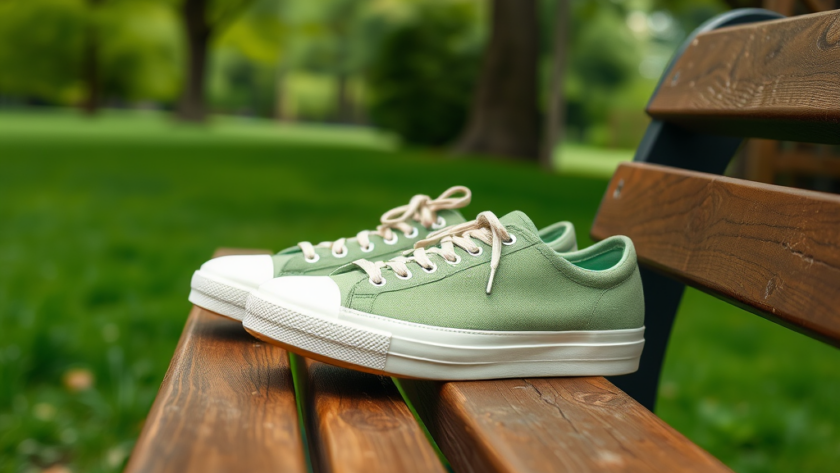As the world increasingly moves towards sustainable living, ethical sneakers have emerged as a compelling alternative for those who wish to make better choices in footwear. Gone are the days when purchasing a pair of sneakers was merely about style and comfort; today, it is also about the broader implications of that choice. With the fashion industry being one of the highest polluters globally, consumers are now more inclined to consider where their products come from and the methods used to create them. Ethical sneakers not only reflect a commitment to sustainability but also to fair labor practices and environmental health. As you delve deeper into what ethical sneakers offer, you’ll discover that your choices can indeed shape the world around you.
This comprehensive guide is designed to equip you with the essential knowledge needed to make informed decisions in your sneaker purchases. We’ll cover what defines an ethical sneaker, the importance of various ethical factors, and how to discern the many options available in the market. By the time you finish reading, you’ll be empowered to choose footwear that aligns with your values, all while contributing to a more sustainable future.
What Makes a Sneaker Ethical?

When defining ethical sneakers, multiple factors come into play that merit consideration. First and foremost is the material used in crafting the footwear. Sustainable materials are crucial; organic cotton, recycled plastics, and innovative textiles play a significant role in lessening the environmental impact. Secondly, fair labor practices are non-negotiable in ethical sneaker production. This includes ensuring safe working conditions and fair wages for laborers—an issue often sidelined in the rush for fast fashion. Understanding these fundamentals will help you navigate the complex landscape of sneaker choices.
Sustainable Materials
Sustainable materials are the backbone of ethical sneakers. By investing in sneakers made from organic or recycled materials, consumers contribute to a decrease in resource depletion and promote eco-friendliness. Some examples of sustainable materials frequently used in ethical sneaker production include:
- Organic Cotton
- Recycled PET Plastic
- Natural Rubber
- Bamboo
Fair Labor Practices
Fair labor practices ensure that the people making the sneakers are treated with respect and dignity. Brands that adopt ethical labor standards not only provide fair wages but also commit to safe working conditions. Many ethical sneakers come with certifications to back their claims, providing transparency for consumers. This creates a win-win scenario where both consumers and workers benefit from more conscientious production practices.
The Rise of Ethical Sneakers in the Fashion Industry

In recent years, the demand for ethical sneakers has skyrocketed within the fashion world. High-profile brands are beginning to respond to consumer demand by adopting more sustainable methods of production. While the impact of this shift is multifaceted, one consistent outcome is increased transparency in supply chains as consumers seek out authenticity and responsibility. Major brands now recognize that aligning their missions with ethical practices not only attracts loyal customers but also elevates their market positioning.
Brand Innovations
Innovations in ethical sneaker production are numerous. Brands are continuously engineering new ways to reduce waste and enhance sustainability, ensuring they not only meet consumer demands but also contribute positively to the planet. A few leading brands making significant strides in ethical sneaker production include:
- Allbirds: Known for using merino wool and sugarcane.
- Veja: Uses organic cotton and wild rubber from the Amazon.
- Adidas: Committed to producing sneakers made from recycled ocean plastic.
Consumer Awareness
The rise of ethical sneakers correlates with increasing consumer awareness about the repercussions of mass production. Today’s consumers are not just passive shoppers; they actively seek out brands that mirror their values. More than ever, shoppers are motivated by the desire to make environmentally friendly choices. This heightened awareness is compelling companies to adapt their practices, ultimately leading to a broader shift within the fashion industry as a whole.
How to Choose Ethical Sneakers
When it comes to selecting ethical sneakers, the process can sometimes feel overwhelming. However, there are focused strategies to help guide your purchasing decisions. Start by thoroughly researching the brands available, as well as their respective practices and certifications that validate their ethical claims. Effective research can significantly simplify your options.
Research Brands and Certifications
The landscape of ethical brands is diverse, and not all brands that claim to be “ethical” meet the same standards. Therefore, understanding certifications is a crucial component of your research. Some reputable certifications to look for include:
- Fair Trade Certified
- Global Organic Textile Standard (GOTS)
- OEKO-TEX Standard 100
Consider Your Needs and Lifestyle
While ethical considerations are paramount, it’s vital to assess your personal needs when selecting sneakers. Consider how often you will wear them, the activities you plan to engage in, and even your style preferences. Counting all these factors ensures you not only invest in an ethical choice but also in a product that meets your lifestyle requirements.
To further assist you in your decision-making process, the following table outlines some characteristics of various ethical sneaker brands, showcasing their unique selling points:
| Brand | Sustainable Material | Fair Labor Practice |
|---|---|---|
| Allbirds | Merino Wool, Sugarcane | Certified B Corp |
| Veja | Organic Cotton, Wild Rubber | Direct trade with producers |
| Adidas | Recycled Ocean Plastic | Fair Work Code Compliance |
The Benefits of Wearing Ethical Sneakers
Choosing ethical sneakers yields benefits that extend beyond personal comfort and delivers advantages to the environment and society. For starters, supporting sustainable practices means contributing to efforts aimed at reducing pollution and resource exploitation. This is essential in the current climate crisis, where every small action counts.
Positive Impact on the Environment
By prioritizing ethical sneakers, consumers indirectly support initiatives designed to mitigate environmental damage. These shoes are often made from renewable resources and are generally produced using methods that focus on lowering carbon emissions.
Support for Fair Labor
Wearing ethical sneakers also equates to supporting fair labor practices. Your purchase contributes to improved working conditions for many laborers, ensuring they receive fair wages and the respect they deserve. It’s more than a fashion statement; it’s an investment in the people who create your footwear.
Conclusion
In summary, ethical sneakers represent a pivotal evolution in consumer choices within the fashion industry. The foundations of ethical production—sustainability, fair labor practices, and consumer awareness—form the bedrock of informed, conscious purchasing. As you embark on your journey of selecting the right ethical sneakers for you, remember that your choices can drive positive change. Each purchase not only enhances your wardrobe but also supports a broader mission of sustainability and fairness, benefiting the planet and its people.
Frequently Asked Questions
- What are ethical sneakers? Ethical sneakers are footwear made from sustainable materials and produced under fair labor practices.
- How can I identify ethical sneaker brands? Look for certifications, research company practices, and check if they use sustainable materials.
- Are ethical sneakers more expensive? They can be, but the price often reflects the commitment to ethical production processes and materials.
- What materials should I look for in ethical sneakers? Consider sneakers made with organic cotton, recycled plastics, and other environmentally friendly materials.
- How do ethical sneakers impact the environment? Ethical sneakers typically focus on reducing waste and lowering carbon footprints through sustainable production methods.




